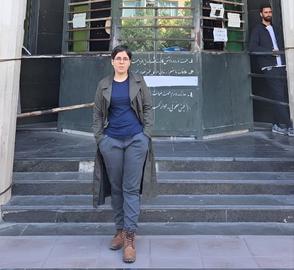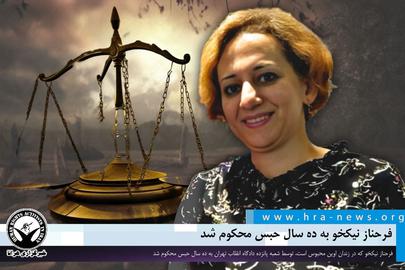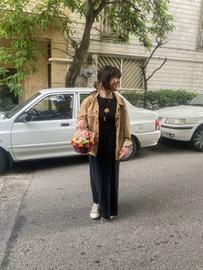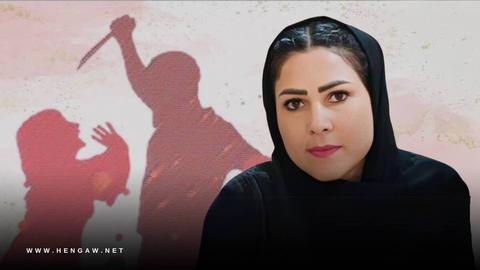After the government of President Ebrahim Raisi announced in September of 2022 that it planned to close some 1,000 libraries belonging to the Institute for the Development of Children and Young Adults to “cut costs,” the public and media outcry was so shrill that the government beat a hasty retreat and the Ministry of Culture and Islamic Guidance called the reports “a lie.”
With 3,720 public libraries across Iran, more than 45 million books and more than 10 million members, this institute is the legacy of one woman: Lily Amir-Arjomand.
Amir-Arjomand was instrumental in creating libraries and cultural development centers for children in the last 15 years of the shah’s rule. Her Institute for Intellectual Development of Children and Young Adults (Kannon) became a center for training artists and writers and for making movies and animated films for children. The institute survived the 1979 revolution and many prominent Iranian filmmakers, writers and artists began their careers there.
She was born Lily Jahan-Ara in 1938 to a family committed to education. She studied at the French school Razi in Tehran, where she was a classmate of Farah Diba, the future queen. After receiving her Bachelor’s degree in French from the University of Tehran, she went to the United States to continue her education. She received her Master’s degree in library science from Rutgers University.
Upon returning to Iran she married Hossein Ali Amir-Arjomand, a physics professor at Tehran University, and changed her last name to his.
While she was out of the country, her classmate had become the queen of Iran. Queen Farah was enthusiastic to promote arts and culture in the country and usually relied on her friends and relatives to help, including Amir-Arjomand.
Amir-Arjomand brought up the idea of a children’s library, which she had been thinking about since her school days, with Queen Farah. The queen ordered that a parcel of land in a park be made available to her to realize her plan.
“At that time I did not imagine that one day the library would turn into a cultural center,” Amir-Arjomand told BBC Persian in July 2015. “We were just after a library. But from the early days, while we were waiting for the construction of the library to be finished, we came to the conclusion that one library was not enough and we had to build other libraries in Tehran and other Iranian cities. We could not imagine that the work we were doing would expand to this level, but gradually and with its unprecedented popularity among children, things started to happen by themselves. Depending on the needs of the community, the libraries were established one after another.”
Stationary libraries, however, did not satisfy her vision. She created mobile children’s libraries and distributed books, free of charge, to children in the underprivileged neighborhoods of Tehran.
But she wanted more than simply buying books and building libraries. There were very few children’s books available in the Persian language and she wanted to change that. Once again, Farah stepped forward to help her former classmate. The queen translated and illustrated Hans Christian Andersen’s The Little Mermaid. The book was sold together with a 45-rpm vinyl record and, according to Amir-Arjomand, provided the seed money for a publishing house operating under the Institute for Intellectual Development of Children and Young Adults.
Besides heading the institute, Amir-Arjomand took on a range of other roles. She was the head of the National Library, an associate professor at Tehran University and a board member of the Museum of Science and Technology.
The institute later added filmmaking, animation and theater to its activities, but Amir-Arjomand believed the libraries remained the heart of her enterprise.
Lily came up with the idea of these libraries in 1965. At the time, it was difficult to imagine that, only 14 years later, her wish would be realized so spectacularly. By the time of the 1979 revolution, Kannon had 235 rural and urban libraries, with 100 million books for two million members. Each stationary urban library had at least 300 titles for children and young adults, plus 100 titles that Kanoon itself had published. Mobile libraries took books to areas that had no libraries, and mules and rough-terrain cars delivered books to tribal tents to be read by children and adolescents.
When the shah left Iran, revolutionaries ransacked royal palaces and seized photographs of parties in which the royal family and their friends had taken part. These photographs became the raw material for the new regime to accuse Amir-Arjomand of extreme “moral corruption.” They also quoted from two memoirs to back up their charges, one by the shah’s mother and the other by the queen’s mother.
“Of course I was unhappy with Lily’s sexual recklessness,” Farah Diba’s mother wrote. “When we traveled to [the Caspian Sea beaches], she would go for a swim stark naked and she did not care that dozens of guards were watching her.”
Despite these attacks on her reputation, the legacy of Lily Amir-Arjomand, who now lives in the United States, is safe: The Institute for Intellectual Development of Children and Young Adults is still in operation and enjoys broad public support.
visit the accountability section
In this section of Iran Wire, you can contact the officials and launch your campaign for various problems


























comments